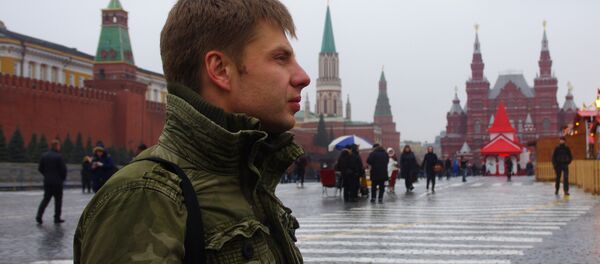On Tuesday, the European Parliament announced that Parliament and Council negotiators had struck an informal deal to allow visa-free travel to the Schengen Area for 90 days in any 180-day period, for business, tourist or family purposes.
A European Parliament source told RIA Novosti that the EU Council, European Parliament and the European Commission reached a decision on granting a visa waiver for Ukraine, and the decision will be confirmed by the Committee of Permanent Representatives of EU member states (COREPER) on Thursday.
On February 27, at the same time as it adopted the visa liberalization agreement with Georgia, the EU Council also adopted a regulation which makes it easier for the EU to suspend visa liberalization agreements if it see fit.
Among other measures, the regulation extends the grounds for suspension of a visa liberalization agreement, including too few readmissions and an increase in "the risk to public policy or the internal security of the member states."
It sets up a faster, two-month procedure for imposing a nine-month or a further 18-month suspension of the visa waiver.
Writing in the Russian newspaper Vzglyad, columnist Irina Aliksnis notes that these measures give EU officials more options for controlling migration from Ukraine into the EU, which has reached record levels.
"Given the West's attitude to Ukraine (it is enough to remember how the IMF methodically drags its feet with every tranche), there is no doubt that Europe will use the tool to suspend the visa-free regime on a regular basis," Aliksnis wrote.
The author says that in contrast to the hopes of Ukrainians for greater travel opportunities, they could in fact face lesser possibilities for travel.
"The visa-free regime could put Ukrainians in a situation where they are locked in their own country like a bank which is periodically opened, but which it is impossible to predict how often and for how long. This in turn will put an end to any plans for travel in Europe, because planning a trip will be practically impossible."
"As a result, instead of bringing a long-held dream to life in the form of a visa-free regime (with all of its neighbors), Ukrainian society could end up in an extremely unpleasant trap – trapped in Ukraine, which is experiencing severe economic collapse, without any options to leave the 'sinking ship', " Aliksnis wrote.
Kirill Koktysh, Russian political scientist and associate professor of International Politics at Moscow-based MGIMO University, called the EU's proposal a "PR stunt which might drag on for years."
"The final decision about visa free travel will be made by member states, therefore the European Parliament's decision doesn't offer any guarantee at all," Koktysh told RIA Novosti.
"It is clear that these developments will be regulated with so many conditions that they are made to be unacceptable to the majority of Ukrainians," he said.




